Measles cases in West Midlands highest since 1990s
- Published
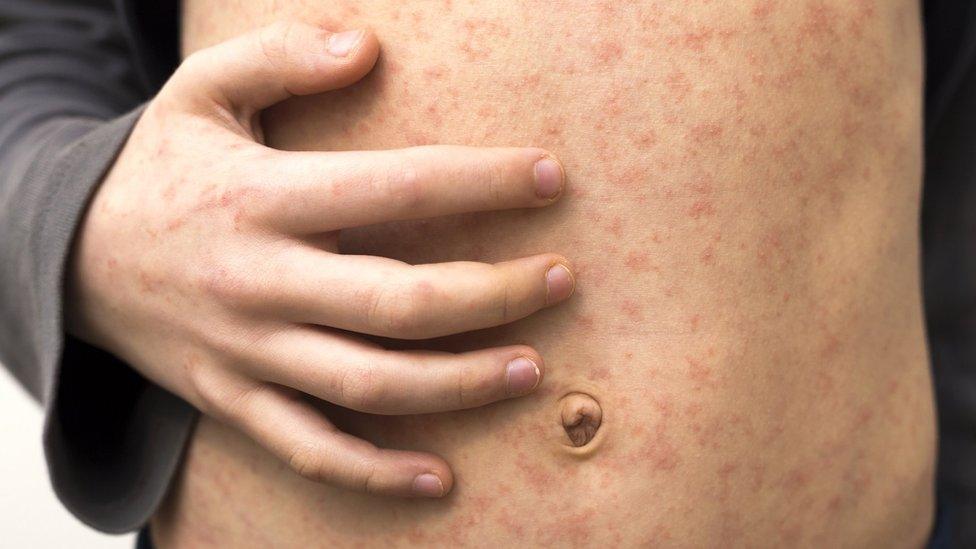
Latest figures show there have been 133 confirmed cases of measles in the West Midlands since 1 October
The number of people with measles in the West Midlands is at its highest since at least the mid-1990s, health officials say.
Figures show the area had 133 cases since 1 October, the highest number since the two-dose measles, mumps and rubella (MMR) jab was rolled out.
There were also 96 "likely" cases in the same time period, data from the UK Health Security Agency (UKHSA) shows.
In England, there were 167 confirmed cases between January and October 2023., external
The main symptoms of measles include a high fever, sore and red watery eyes, coughing, sneezing and a rash that usually appears after initial symptoms.
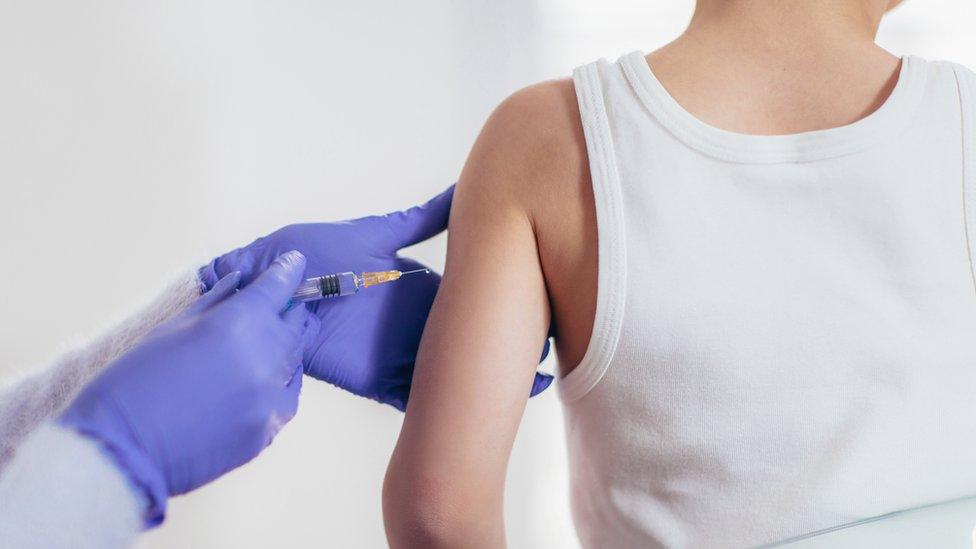
The measles, mumps and rubella (MMR) vaccination is given in two doses
Dr Naveed Syed, health protection consultant at the UKHSA, said outbreaks of measles across the region were an "increasing problem".
"At the moment, we are seeing quite a number of outbreaks of measles unfortunately, throughout the West Midlands," he told the BBC.
"It's mainly concentrated in the Birmingham area, but we do have cases in the Coventry area."
Parts of Birmingham and the Black Country have among the lowest vaccination rates in the UK.
'Pork derivate'
Dr Syed said "fewer and fewer people" were receiving immunisations due to "various communities" holding "various beliefs around measles".
"There are some Muslim communities who have concerns around the MMR, because one of the MMR vaccines does have ingredients derived from pork," he said.
"However there are other vaccines available, that do not have any pork or pork derivate ingredients in them, which are perfectly safe to be given."
He urged people to book in with GPs if they had not had two doses of the vaccine.
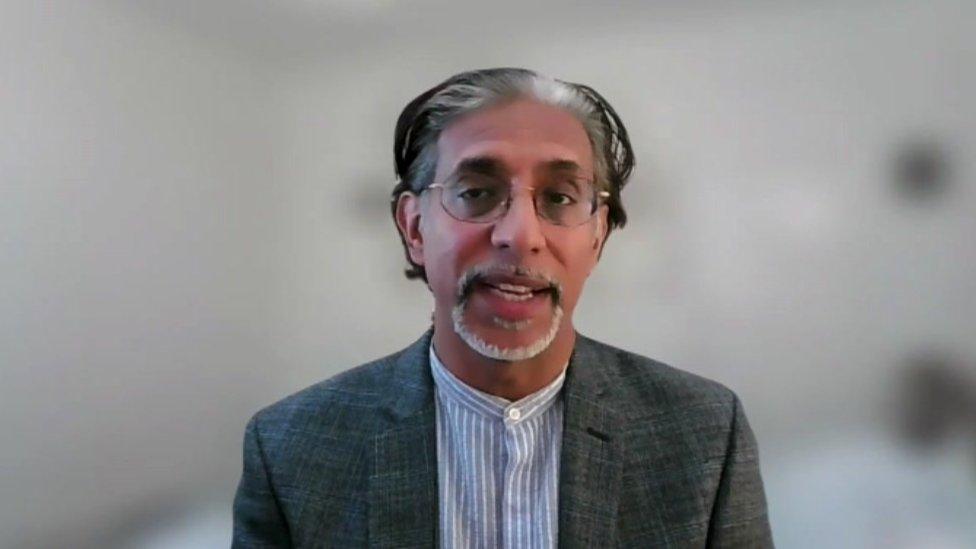
Dr Naveed Syed said the MMR vaccine was "safe and effective"
Measles vaccinations were introduced in the UK in 1968 and are estimated to have prevented 20 million measles cases and 4,500 deaths.
The MMR jab, introduced in 1996, is part of the routine NHS schedule of childhood vaccines. It is given in two doses, the first before age two and the second before age five.
Dr Syed said the vaccine was "safe and effective" and would give "90 to 95% protection" against developing symptoms of measles.
"So at least one vaccine is essential - and preferably two, because that gives nearly 100% of protection against diseases like measles," he explained.
"The more people that get the vaccine, the better it is for the whole community as then we protect everyone."
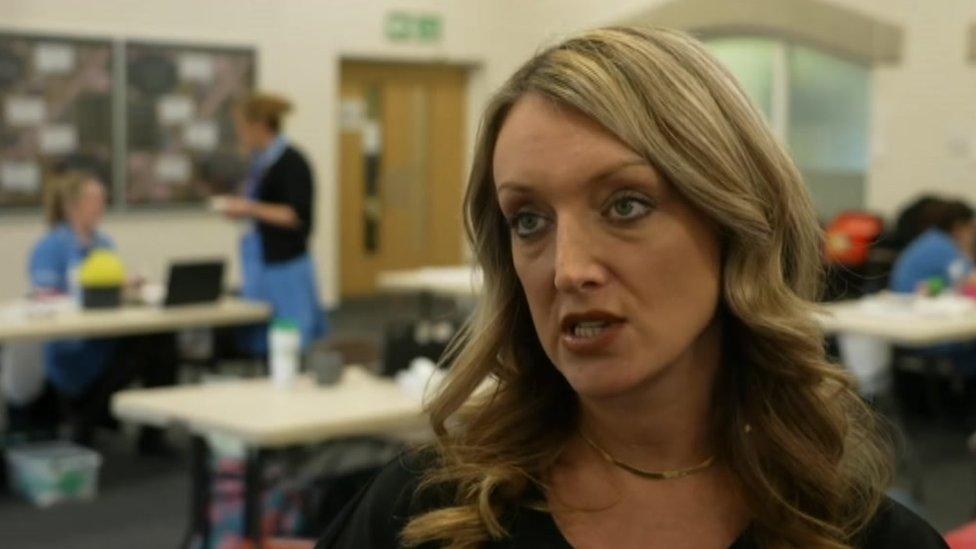
Amy Husband said a recent measles vaccination programme at Frederick Bird Academy had been "really positive" for pupils and staff
The Frederick Bird Academy, in Coventry, has been holding measles vaccination clinics after two of its pupils were taken to hospital with the disease.
Both pupils fully recovered, but Amy Husband, school improvement partner, said public health officials had recommended the primary school ran a catch-up vaccination programme, following the recent outbreak.
She described the response as "really positive" for pupils, staff, parents and the wider community.
"We ran that vaccination clinic, and we went from around 40% vaccination to around just under 80% vaccination," she said.

Follow BBC West Midlands on Facebook, external, X, external and Instagram, external. Send your story ideas to: newsonline.westmidlands@bbc.co.uk, external
Related topics
- Published25 July 2023

- Published14 July 2023
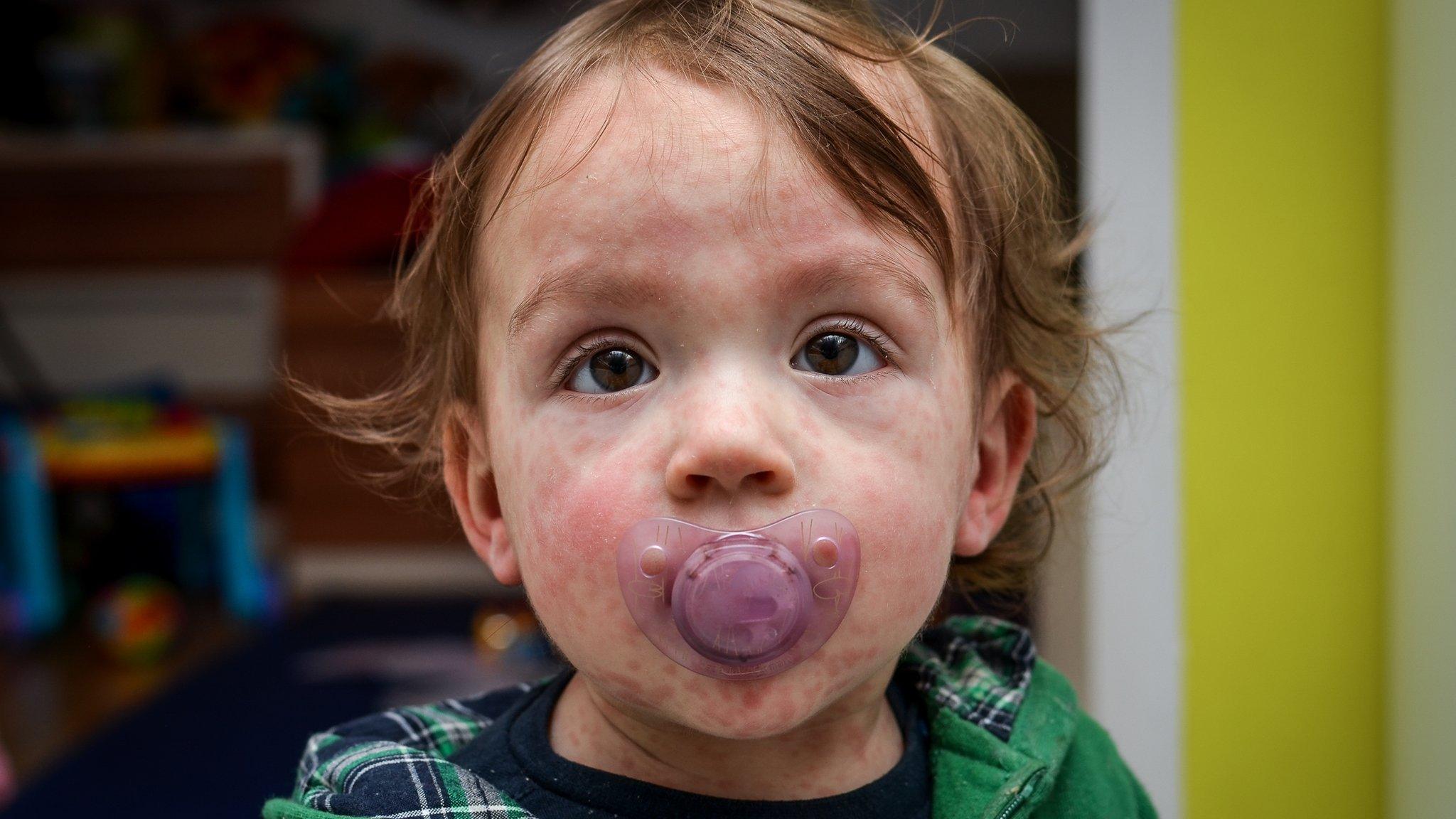
- Published4 May 2023
